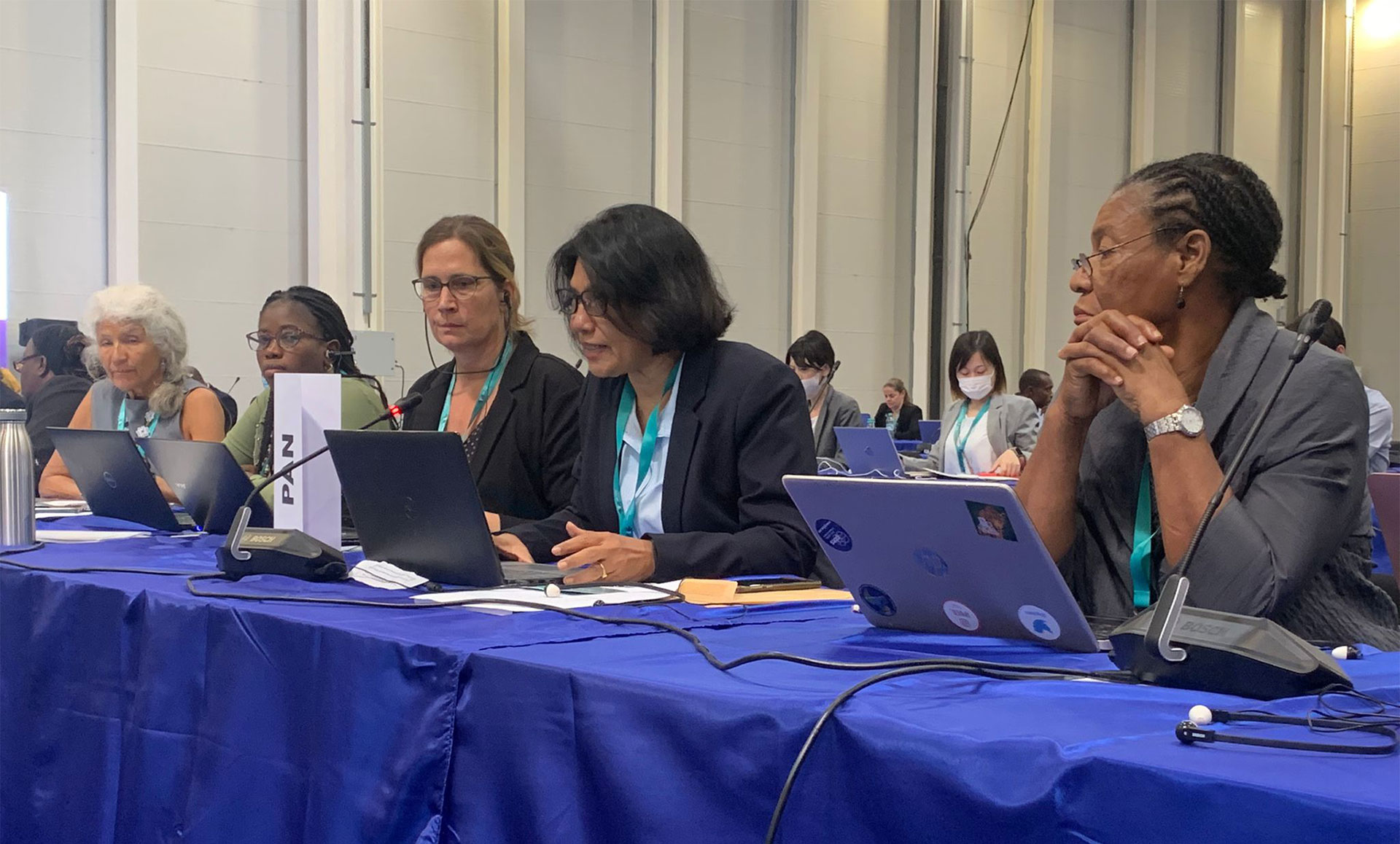Pesticide Action Network Asia Pacific (PANAP) joined PAN International and other CSOs in calling for the elimination of Highly Hazardous Pesticides (HHPs) in agriculture by 2030, among other targets, at the Fourth meeting of the intersessional process considering the Strategic Approach and Sound Management of Chemicals and Waste beyond 2020 or SAICM IP4 being held in Bucharest from August 29 to September 2.
“While we are negotiating text here at IP4 during this week, we should remember that we are doing this for the planet and future generations. A major problem recognised by SAICM are Highly Hazardous Pesticides (HHPs). There are an estimated 385 million unintended pesticide poisonings every year, an unknown number of long-term effects and over 150,000 pesticide-related suicides. For every one of these numbers there is a farmer, worker, woman, a family, a child suffering the debilitating impacts. Pesticides also contribute significantly to all the current global crises – climate disaster, biodiversity loss, chemical pollution – that are threatening the survival of the planet as we know it,” said Sarojeni Rengam, PANAP executive director, in a statement read on behalf of PAN International.
PAN cited a new scientific study published in the Journal Environmental Science and Technology, which concludes that “pesticides wipe out non-target insects that are fundamental to all ecosystems, and therefore, to the provision of clean air, water and food.”
PAN is pushing for a “strong, ambitious framework” that would ensure a toxic-free future and the right to a clean and healthy environment as declared by the UN General Assembly, a framework that it hopes to be adopted by the upcoming fifth session of the International Conference on Chemicals Management (ICCM5).
“To ensure a robust and inclusive global process for solutions along the whole lifecycle of chemicals and waste that make real impact, we need to act now,” said Rengam.
In PAN International’s position paper to the SAICM IP4 Beyond 2020 Process, the group said that existing targets are “inadequate,” and calls on all stakeholders to defend the following targets proposed by CSOs:
- By 2030, all countries have prohibited the export of substances that they have prohibited nationally
- By 2030, the use of Highly Hazardous Pesticides is eliminated from agriculture
- By 2030, information on nonchemical alternatives to HHPs and especially agroecological approaches is made available to all farmers.
- By 2025, 70 countries have prohibited and phased-out at least ten highly hazardous pesticides and by 2030, highly hazardous pesticides are removed from agriculture.
- By 2025, information on HHPs produced, imported, exported and used is available to all stakeholders
PAN also emphasised that the Global Action Plan on HHPs being jointly developed by the FAO, WHO and UNEP must deliver on the agreed SAICM commitments and targets on HHPs.
“The version of the plan that was shared in 2020 was weakened compared to previous drafts on which a limited group of stakeholders, including PAN, were consulted. Our concern is that, after another two years without open consultation, it will be further weakened to the point where it no longer supports SAICM objectives and could actually hamper progress,” the group stated. “There must be a process that allows SAICM stakeholders to review and accept, reject or amend the Global Action Plan on HHPs.” ###
Reference: Sarojeni Rengam, PANAP Executive Director (sarojeni.rengam@panap.net)
Pesticide Action Network (PAN) International is a network of 600 CSOs and institutions in over 90 countries working to eliminate the harm caused by pesticides and to replace them with agroecology and non-chemical alternatives. PAN Asia Pacific (PANAP) is one of its five regional centres.








Discussion about this post